With the Federal Reserve reporting that Americans owe $1.021 trillion in outstanding credit card debt, having the facts about how to get out of debt has become more important than ever before. The good news is getting out of debt does not have to be as stressful, painful, or hard as you might think. Mostly, paying off debt requires focus, a changed perspective on spending, and the ability to separate the myths from the facts.
How to Get Out of Debt: 12 Common Misconceptions
I should cancel and close out my credit card accounts.
You must spend less to pay off debt. Most think closing cards will help. While this will certainly prevent new charges, it will not help your credit score. According to The Balance, well-aged accounts are one of the things that improve your credit score. If you cannot control your spending, destroy your cards or lock them away, but leave accounts open.
I need to pay off all of my debts before I can start saving.
People often think they cannot start saving until they pay off their debt. Failing to save is a serious mistake. According to a study reported by MarketWatch, about 50% of Americans live paycheck to paycheck, meaning they have no savings or plan for unexpected expenses. Add your savings account to your list of bills, and pay yourself first (even if you can only afford a small amount each paycheck). If you have a costly emergency, you can pay with your savings rather than racking up more debt.
I keep track of my money and balance all of my accounts, so I do not need a budget.
Online banking and mobile apps have made it easy to monitor account balances. Even if you reconcile your accounts and never overdraw, you still need a monthly budget that allows you to set and follow a financial plan, get out of debt, save, and actually see how much of your money goes toward shoes, coffee, or evenings out. Create a quick budget and adjust it to fit the demands and aspirations of your ever-changing life.
It is okay to pay only the minimum payments on my credit cards.
No, paying the minimum required payment on bills will not hurt your credit, but it also will not help you get out of debt or save money in interest. Say you owe $5,000 on a 20% interest card. If you pay a minimum monthly payment of $100, it will cost you $5,840.10 in interest and take 109 months to pay off. If you swing $100 dollars more monthly, you would pay the card off after only 33 payments and $1,522.10 in interest. That's more than $4,000 in saved interest – a substantial start to your emergency fund.
Late payments are okay, as long as they are not more than 30 days late.
A late payment fewer than 30 days will not appear on your credit report. These payments do not affect your score or history. Paying late, however, is bad for a couple of reasons. If you cut it close, it is easy to end up over 30 days, which risks damaging your credit history and incurring late fees. Also, when you pay late, you incur more interest because interest accrues on your full balance every single day. So, the sooner you pay down the principal balance on your accounts, the less daily interest you will be charged.
I should transfer my balance to a card with a lower interest rate.
Although balance transfers may make sense for certain offers where you are paying more interest than the credit card you transfer to, you have to be careful to calculate and understand if there are any balance transfer fees. Don’t just jump on balance transfer, inquire and think of it strategically if it will benefit you to transfer before making the move.
Click here to get in touch with Carolina Trust to get custom advice catered to your needs.
I have too much debt to ever pay it all.
Having several credit accounts and owing a lot can feel really overwhelming. First, the payments can be difficult to track. Second, several minimum payments can stretch your budget (you know, the one you made after reading number three). Don't fret; consider a debt consolidation loan, which combines separate credit accounts into a single loan with one payment at a lower interest rate. Never miss a payment with automatic payments.
It is okay to make new charges after consolidating debt.
Although it can be tempting to use charge cards after consolidating debt, remember you still have a loan to pay. Small charges add up quickly, and before you know it, will put you back where you started.
All debt is bad.
Loans that increase your net worth or lead to making money (like mortgages, student, or business loans) can be useful tools for getting ahead. When deciding to take on debt, consider how much the loan will cost and whether it will improve your financial position.
Retail credit offers are a good deal.
Stores offer enticing credit promotions to make sales. If they were a good deal, then the retailers would not offer them. High fees and increased sticker prices typically offset the promises of zero interest and no down payments.
After my divorce is final, I will no longer be responsible for my ex's accounts.
A divorce decree does not remove your name from joint accounts. You will have to deal with each creditor separately in order to have your name and responsibility removed from joint accounts.
I will never recover from my poor financial decisions.
History of collection accounts, late payments, or overspending will not drag you down for life. Sure, it will take time to pay everything off and re-establish healthy credit history, but these records do not last forever. Negative information will only remain on your credit report for seven years. When you decide to get out of debt, leave the heavy baggage behind, and enter your future with a positive attitude.
Get a Fresh Start for a Fresh Outlook on Your Finances: Guidance on How to Get Out of Debt
Now that you have the facts, let us help you learn more about how to get out of debt. We encourage our members to budget and save for their financial freedom. Get in touch with us so we can help you navigate your financial life.




